BLACK MIRROR, 6.3 – ‘Beyond the Sea’
In an alternative 1969, two men on a perilous high-tech mission wrestle with the consequences of an unimaginable tragedy.
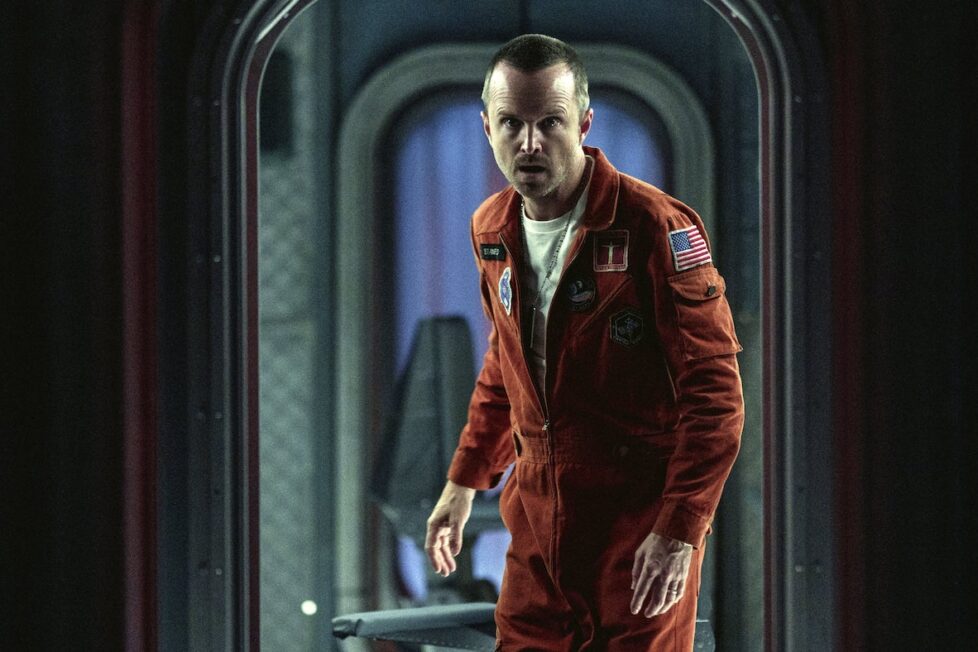
In an alternative 1969, two men on a perilous high-tech mission wrestle with the consequences of an unimaginable tragedy.


Charlie Brooker writes a traditional sci-fi tale in the grand Ray Bradbury tradition with the excellent third episode of Black Mirror Series 6, “Beyond the Sea”, which contains relatable human drama and a big sci-fi idea, but with the show’s signature bitterness mixed in — even if a climactic note of despair perhaps takes thing a step too far…
In an alternate version of 1969, we’re introduced to two middle-aged astronauts on Earth living separate lives. David Ross (Josh Hartnett) is a romantic who reads, paints and listens to French music, living with his beautiful wife and two young children while enjoying being a local celebrity glad-handing his fans. The pricklier Cliff Stanfield (Aaron Paul) has a similar setup with his own wife Lana (Kate Mara) and young son, although they’ve recently moved to the Massachusetts countryside, where city girl Lana’s struggling to adjust to a quieter rural setting. The early twist is that both men aren’t really on Earth with their families, they’re actually floating millions of miles away in space, co-piloting a ship halfway through a six-year mission, but able to transport their minds back home by inhabiting so-called “Replicas” —synthetic bodies indistinguishable from their own.
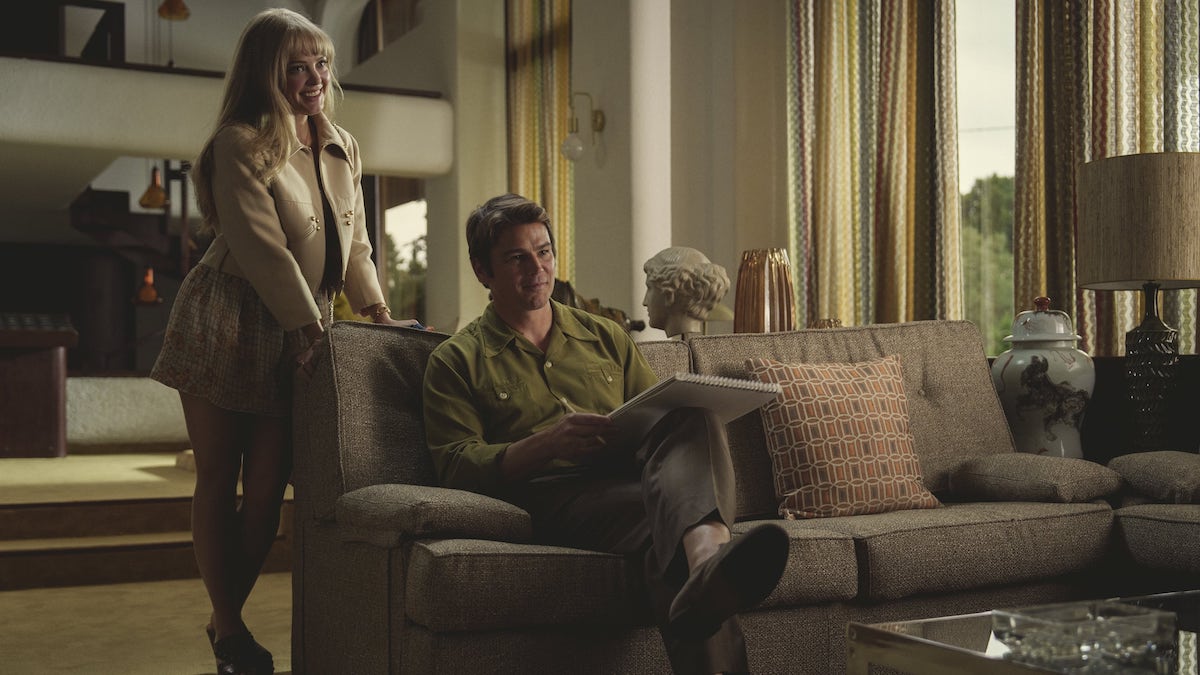
The story really begins when David suffers an unimaginable tragedy when a gang of Manson Family-style cult members break into his home — led by a deranged hippie called Kappa (Rory Culkin) who believes Replicas are an affront to Mother Nature. Kappa and his cronies brutally murder David’s family in front of him, then set fire to his Replica, forcing him to awaken back on the ship with Cliff and deal with his grief and anger while being unable to even attend his family’s funerals. Cliff does his best to comfort David and help him through this unspeakable nightmare, but eventually realises his workmate is becoming increasingly detached and has perhaps even started contemplating suicide. And the ship needs two able-bodied people to properly operate, so what better way to help than by offering David the chance to return to Earth using his own Replica body, to at least feel the sunshine, touch grass, and relax around his country home with Lana?
Charlie Brooker wrings a lot from this high-concept idea over 84 minutes. It’s especially fun that it takes place in the late-1960s, with all the period fashions and vintage cars, yet the U.S. space program has advanced maybe a century or more past the point of landing a man on the Moon. And yet the spacecraft David and Cliff are aboard doesn’t look especially high-tech inside; it’s contemporary with analogue buttons and no advanced computer displays. Even television is only available in wavering black-and-white images evoking the Apollo 11 broadcast, yet they can transmit consciousnesses instantaneously to a robot body light years away? It’s all bonkers but great fun.
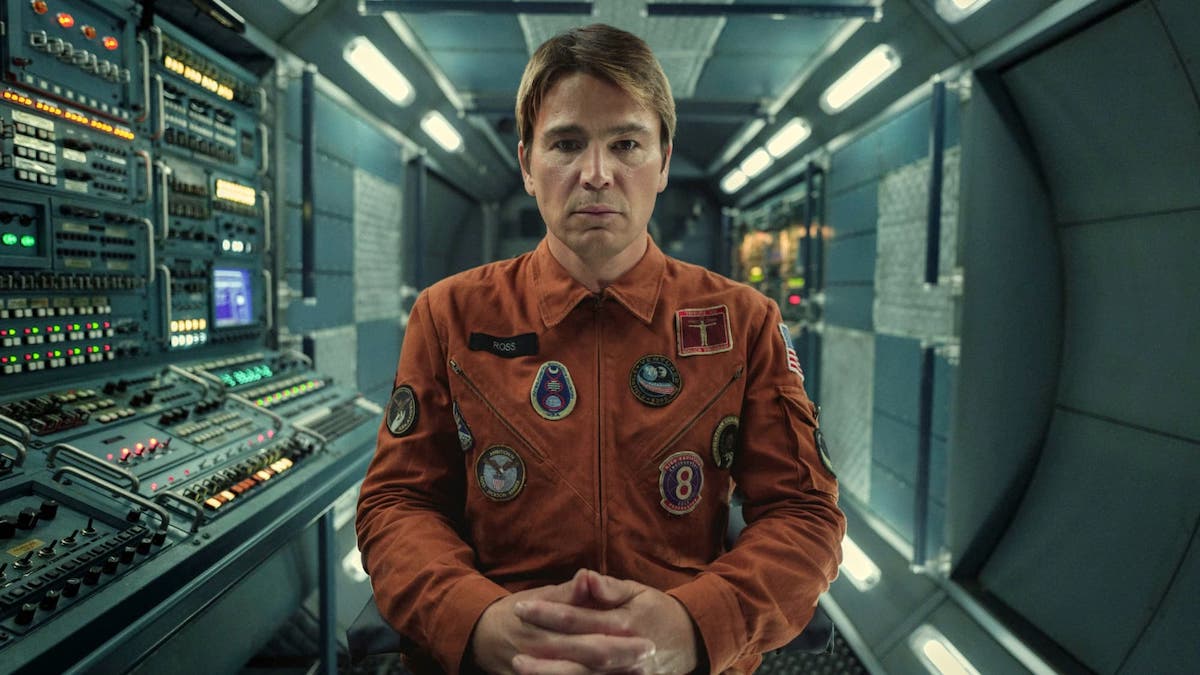
Beyond the intriguing retro-futurism, “Beyond the Sea” delights in telling a simple human story. And while it’s perhaps slightly predictable where things lead, it’s engrossing to watch because of the considered pacing and three stunning performances. David is initially grateful for the chance to return to Earth in Cliff’s “body”, enjoying a chance to unwind and paint his friend’s new home, while getting to know Lana a little better along the way with trips into town to buy books and get supplies. But, as one might expect, David slowly starts to enjoy his earthly R&R a little too much, fantasising about Lana while back aboard the spaceship by drawing nudes of her, then making a subtle play for her affections by demonstrating he’s a more soulful, considerate, and romantic man than her own husband.
The great thing about this story is that neither David nor Cliff are horrible people. They’re decent enough men who share the same flaw in terms of seeing their families as possessions, which was more prevalent in the ’60s so they’re not even atypical for being so old-fashioned. Cliff has indeed started to neglect his wife and forget about her needs, and their sex life is non-existent, but they’re only stuck in a rut and need marriage counselling. It’s not as simple as Cliff being a bad husband and father, but David offers the opposite as a partner. Lana’s excited but hesitant to embrace change because she’s tired of rattling around their enormous house and bringing up her son mostly alone. David has a personality that’s more on her wavelength, being more sensitive and aware, so it feels natural that Lana’s head is turned by the allure of seeing “her husband” behaving in a more appealing manner. And while it’s true David’s behaviour is terrible and he’s abusing Cliff’s trust (and “body”), you can also understand why he’d be craving a fresh chance of love and connection after the unspeakable tragedy he went through.
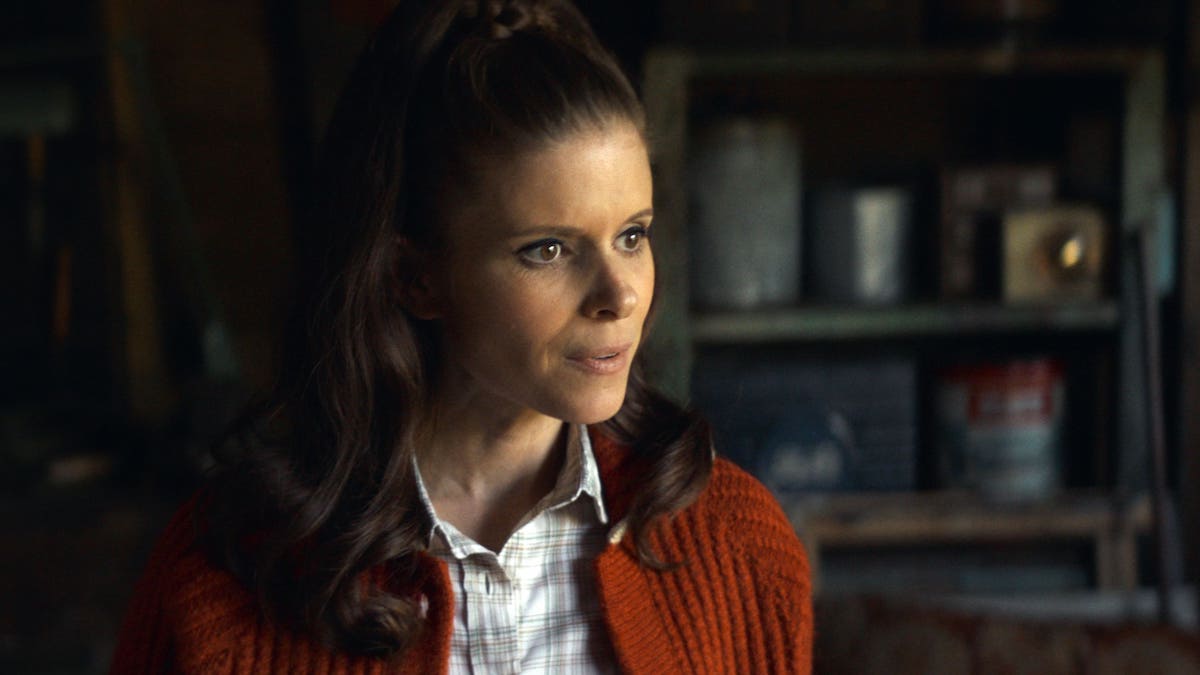
The only sour note with the feature-length “Beyond the Sea” is how it ends in the last few moments, although mileage will vary. I was expecting a bleak conclusion as that’s often the way with Black Mirror, and this story offered a few depressing ways it might end. However, the one Charlie Brooker opted for didn’t ring true — for me, anyway. It was too much of a leap. I won’t spoil things, but it requires you to believe David would do something in particular, knowing the repercussions, and I didn’t buy that someone with his first-hand experience of shocking violence would do that. Even if the point being made is a tit-for-tat mentality jealous and angry men often have. That said, it does mean you end the episode with lots of questions swirling around your head about what David and Cliff will do next as they stare down the barrel of years cooped up together.
The performances are also fantastic, with Josh Hartnett doing an excellent job as a man coping with a soul-destroying tragedy that gradually sends him down a dark path, and Kate Mara bringing a soulfulness and sensitivity to Lana as a woman whose heart is believable split between the two men in her life. However, it’s Aaron Paul (who has form with imaginative sci-fi after Westworld), who stands apart, mainly because he has to play two characters and make them distinct using dialogue and body language. And his efforts to mimic Hartnett when playing David, whenever he’s inhabiting Cliff’s fake body, are right on the money — being more relaxed and measured in his countenance and movements. Cliff and David aren’t wildly distinct personalities, so Paul does a great job making you feel the differences in how he’s playing each one.
Overall, “Beyond the Sea” —named after the Charles Trenet song made famous by Bobby Darin’s cover, about separation — is a quintessential Black Mirror in many ways. Moodily directed by John Crowley (Brooklyn) it has a technological idea behind it (“What if deep-space explorers coped with years away by sending their consciousness back home to inhabit a lifelike avatar?”), but the real story is entirely driven by human drama, social behaviour, and complex emotions. And its message that men are brought up to see women and children as things to validate themselves is an interesting one.
UK | 2023 | 84 MINUTES | 16:9 HD | COLOUR | ENGLISH

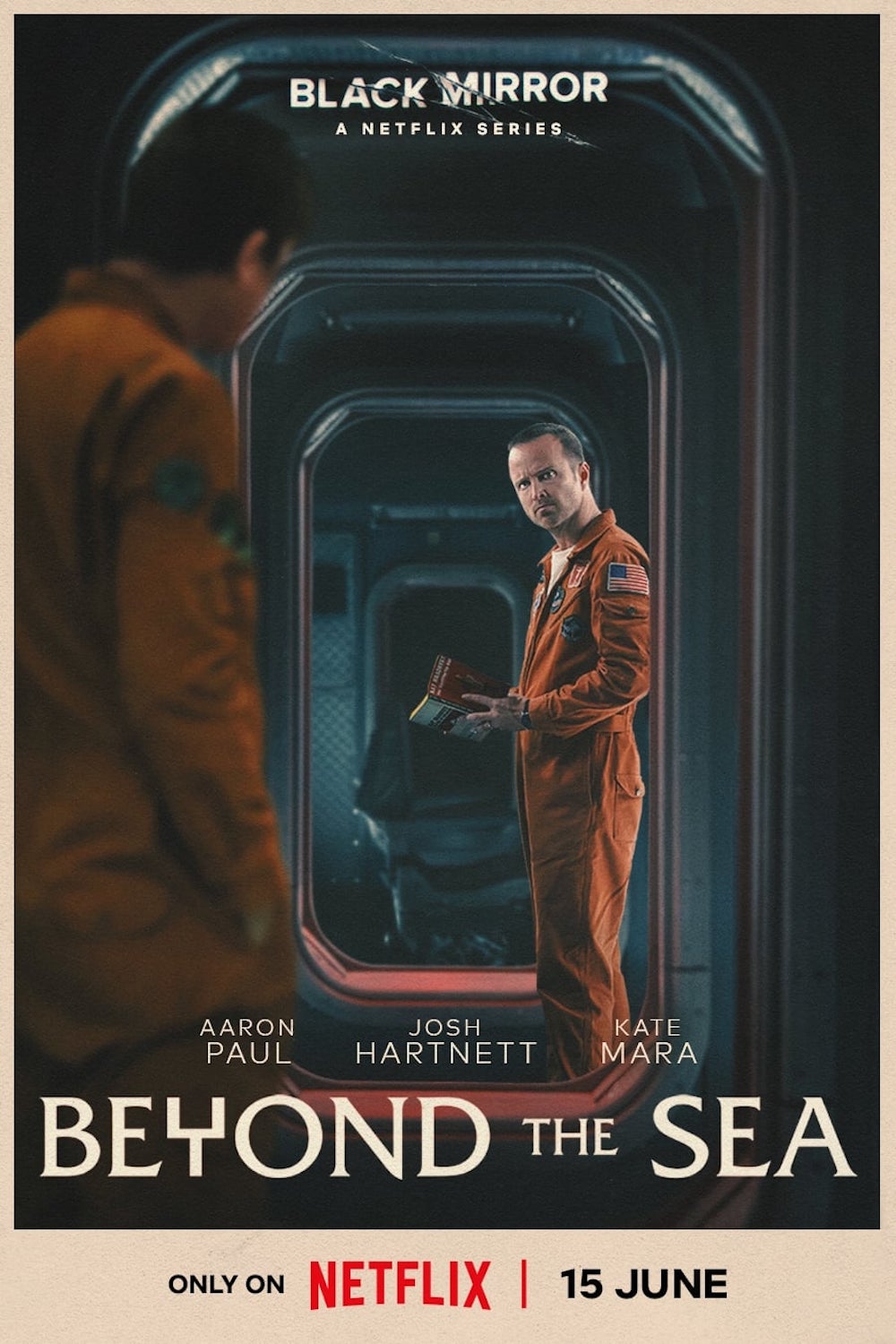
writer: Charlie Brooker.
director: John Crowley.
starring: Aaron Paul, Josh Hartnett, Kate Mara, Rory Culkin, Auden Thornton, Daniel Bell, Billie Sturrock Kewish, Charlie Fidelski, Olen Gunn, Lydia Cherry, Marama Corlett, Siân Davis, Ioachim Ciobanu, Simon Markey & Marceline Hugot.
